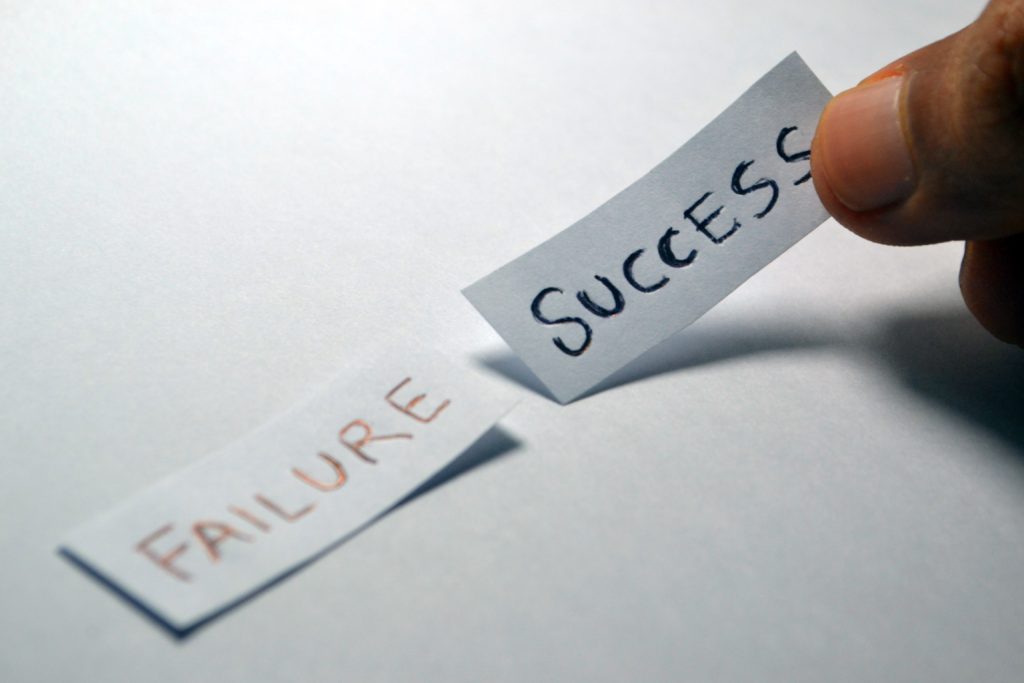Six reasons you flunked the job search and how to cope
or
how to come back stronger after a broken ego

Summary
In this article we explore some of the more common reasons that kept you from getting that dream job. The list is not all encompassing, but even if you don’t necessarily find yourself here, this article provides valuable advice for the future.
You had a poorly made CV
If you wrote one CV, which was kind of generic and sent it out for all the jobs you liked in different industries, then you can stop reading here. Now seriously, your CV should, to the maximum possible extent, be tailored to the job you’re applying to. If jobs of a different type or different industry are what you’re aiming for, then you should have a custom made CV for every job that emphasizes your skills fitting to the chief requirements of the specific job.
Find out what the job position is all about by reading the job description, researching and asking someone working in the industry, then proceed to emphasize the skills and expertise that make you a good candidate. Recruiters and Employers are more sick than tired of seeing generic unfocused CV’s with a very broad and vague personal statement and skills, which fail to capture their attention and end in the trash can.
You skipped the cover letter
We heartily recommend that every sent out CV, be accompanied by a cover letter, because it gives you the chance to make an impression, and communicate in your own personal style to someone you have never met, which in a world, dominated by faceless pixels can make one hell of a difference by helping you stand out from the crowd.
Lack of preparation for the interview
Well, congratulations you’ve landed an interview. Take a break, it’s all in the bag you’d say? NOT!
After briefly, celebrating that you were called for an interview, it’s time to start preparing for it. Lack of preparation can be summarized in – inadequate research done on the company, industry, market, not understanding the job specs, not being able to properly answer the most common questions. You have to go to the interview with, as much knowledge about the company, job, market etc. as you possibly can get. Then shape your answers to fit the role in a way that demonstrates how you’re a great fit and can make important contributions to the company. Dress appropriately for the occasion, clean, well-fitting clothes. Don’t wear a suit to a clown job interview, don’t wear clown clothes to a corporate interview!
Lack of interest in the company
We have difficulties understanding job seekers, who make it to the interview and kill their chances by displaying a lack of interest, lack of vigor and a general dissatisfaction of talking to the interviewer in the first place. Ideally, employers want people who are passionate and enthusiastic, people who can be a part of and help the company in times of need. Try to show that you are interested or familiar with the company, industry, position’s tasks, etc. Avoid showing a lack of conviction about joining the company, especially during the initial stages of the recruitment process.
Not following up after interview
Have you ever had that gut feel, like you should have done something more? Here I say, follow up! Often recruiters/HRs are quite busy, have travelled long, are waiting for you to be proactive or are simply caught in large company processes/restructuring that require their constant attention, thusly stretching HR resources to a breaking point. Whatever the reason if you feel the time is right, go for it and follow up on that HR guy/girl with a phone call, e-mail, written letter reasserting your key qualities and determination for the position, along with a question or two. A typical follow-up can start with a thank you email after the interview, in which you ask a question or two, while thanking for the recruiter’s time and saying that you hope to hear from them soon. This can be followed up by a second set of questions, some time later, along with an inquiry about your candidature’s movement in the HR pipelines. The key here is to communicate in a polite and professional manner if you want to ask “What’s happening with my candidature?” just say that you’re aware that they are swamped with work and that you are wondering and would be thankful for any feedback they may give you.
Badly organized references
Before providing contacts, make sure they are appropriate for the occasion. Know their opinion of you and use it to your advantage as much as possible. Example: Your boss disliked you and you think he’s likely to give poor feedback, however, your manager/team leader really liked you, just give his contacts instead of those of your boss. If the feedback comprises a multitude of bad things to be said, be sure to ease your employer/interviewer into some of them. A little well-placed honesty can go a long way in mitigating the negative impact of poor reference feedback. Be sure to inform your references that they may be contacted and thank them beforehand for their assistance, also, a reference in writing is not a bad idea at all.



